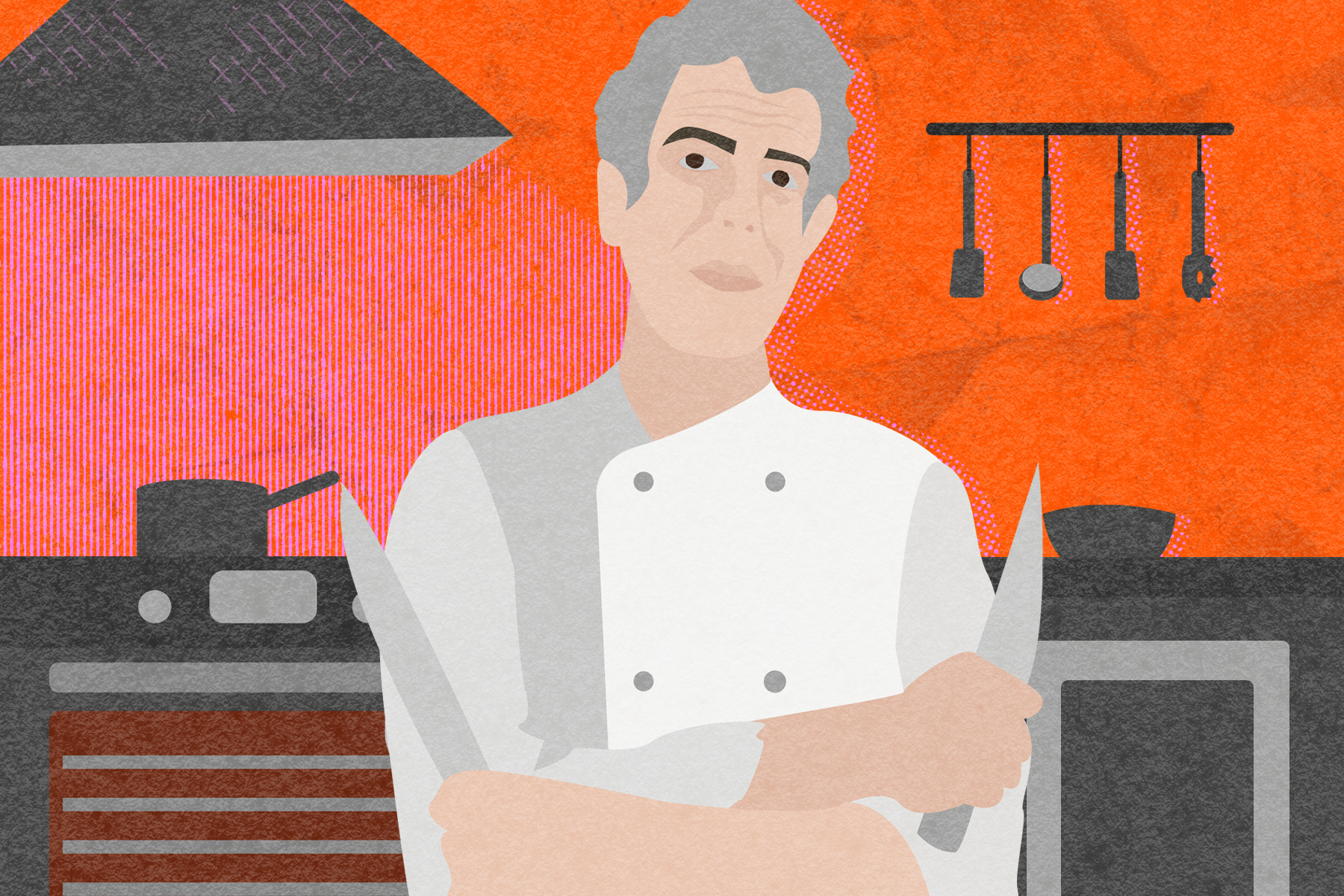The world of professional cooking can seem like a secret society to many. While the Food Network may feature chefs claiming to show you the secrets of preparing and serving world-famous dishes, the fact of the matter is that it’s nigh impossible to understand the life of your local line cook unless you have been in their shoes yourself.
However, the late Anthony Bourdain is one of the few chefs that has tried to demystify their lives, even if just slightly. His numerous memoirs of life behind the expo line have become one of few resources in which common folk can experience the thoughts, emotions and controversial practices that affect those preparing meals in hundreds of thousands of kitchens across the United States. To those who share his lifestyle, he has become a patron saint of sorts, one of the few “celebrity” chefs that truly understand their point of view.
Within his gallery of works, Bourdain’s “Kitchen Confidential: Adventure In the Culinary Underbelly” stands tall as arguably his most well-known and most engrossing book. His casual style of writing makes you feel as if you’re sharing a drink with the chef, discussing misadventures in his 30-year career that will make even the most seasoned cringe at certain times. It goes from endearing, to disgusting, to informative at a moment’s notice, and it is an essential book for those looking to peek behind the curtain of the culinary underworld.
A Peek Behind the Curtain
The main draw of “Kitchen Confidential” is simple: to see what really happens behind the swinging doors of the kitchens across America. If you’ve never worked in the restaurant industry, you may not consider who is cooking your food at your local seafood joint or steakhouse.
However, Bourdain makes it clear that you should. His vivid descriptions of the inner workings of a commercial kitchen make you both admire and revolt at the characters and actions surrounding the preparation of your birthday meal.
“You might get the impression from the specifics of my less than stellar career that all line cooks are wacked-out moral degenerates, dope fiends, refugees, a thuggish assortment of drunks, sneak thieves, sluts and psychopaths,” he writes. “You wouldn’t be too far off base.”
While Bourdain could have used these descriptions of your average line cook to demonstrate how dirty your average kitchen is, he instead uses it to the opposite effect. Throughout the book, he presents the world of restaurant lifers as a place of irony. These moral degenerates he speaks of are often shown to be some of the best people he’s met in his 60 years of life. While fellatio behind the dumpsters may seem abhorrent to your non-expecting reader, Bourdain frames it as part of a culture that allows cooks, servers and bartenders alike to avoid losing their minds amid years of abuse from customers — compounded by grueling double shifts and low wages.
“But I’m simply not going to deceive anybody about life as I’ve seen it. It’s all here: the good, the bad and the ugly,” he writes upon introducing you to the world of the culinary underbelly.
He certainly sticks to that promise, and it makes “Kitchen Confidential” a timeless look into one of the least understood professions.
Not Talking at You, Talking With You
One of the most charming parts of Bourdain’s writing is the conversational style he uses. Many autobiographical works fall into the trap of talking down to the reader, telling stories from their high throne in the same way a haughty CEO would at a company presentation. In “Kitchen Confidential,” this is never the case.
You can practically hear Bourdain speaking to you in the book, going on rants and tirades in the same way a veteran chef would were you to ask them about the things they’ve seen within the industry. Even when talking about something as simple as garlic, Bourdain manages to inject this personality into his writing.
“Garlic is divine. Few food items can taste so many distinct ways, handled correctly. Misuse of garlic is a crime,” he writes. “Please, treat your garlic with respect … Avoid at all costs that vile spew you see rotting in oil in screwtop jars. Too lazy to peel fresh? You don’t deserve to eat garlic.”
This style also manages to make the book flow easily throughout. There are no jarring topic shifts in “Kitchen Confidential.” Even when transitioning from talking about doing drugs in the walk-in cooler to giving out advice on how to build your kitchen toolbox, nothing seems out of place. Once again, it feels as if Bourdain and the reader are hanging out at the bar rail, bringing up subject upon subject deep into the night. It so happens that you want to hear every word he has to say.
The Art of Storytelling
One of the things that makes Bourdain’s numerous memoirs so intoxicating is his willingness to stretch the truth, and admit when he does. Throughout the book, some stories seem too ridiculous to be true. While nothing is made up, so to speak, there are definitely moments when Bourdain’s reminiscing takes precedence over solidified fact.
One of the best examples of this is an account from his line cook years. The story describes the time Tyrone, a seasoned cook at a Provincetown Italian restaurant, humiliates Bourdain after he burns his hand on a hot pan (something cooks deal with on a daily basis). According to the text, Tyrone grabbed the pan with his bare hand, shunning Bourdain — an event that filled him with so much spite that it was one of the biggest motivators in his early career.
For the updated edition of the book, Bourdain writes that Tyrone contacted him soon after the book’s initial release, informing him that no such thing happened.
“However vividly I’d remembered that impressive and humiliating display, he assured me it never happened,” Bourdain writes.
The afterword tells countless tales such as this — a laundry list of people jokingly informing Bourdain he was romanticizing a bit too much. While this may seem like a negative, it actually fits the personality of the book perfectly. Bourdain never takes his stories too seriously, and the fast-and-loose nature of the facts within them are, once again, reminiscent of a chef at the bar rail with a few too many drinks in him. It’s charming, even more so when Bourdain openly calls himself out when informed that he’s “full of shit.”
A Book for Everyone
The beauty of “Kitchen Confidential” is that it is written for everyone. Seasoned restaurant veterans, former college waiters and complete outsiders can all get something from Bourdain’s magnum opus. The lessons learned in a kitchen are universal, and he will be the first to tell you that.
With Bourdain’s passing in 2018, this book can also be viewed as one of the few remaining artifacts of his thoughts on life as well. The unique philosophy of the chefs featured in the zany stories throughout the text are key to better understanding the culinary underbelly, as the full name of the book suggests.
The patron saint of line cooks may be gone, but his legacy will remain through “Kitchen Confidential.”

















